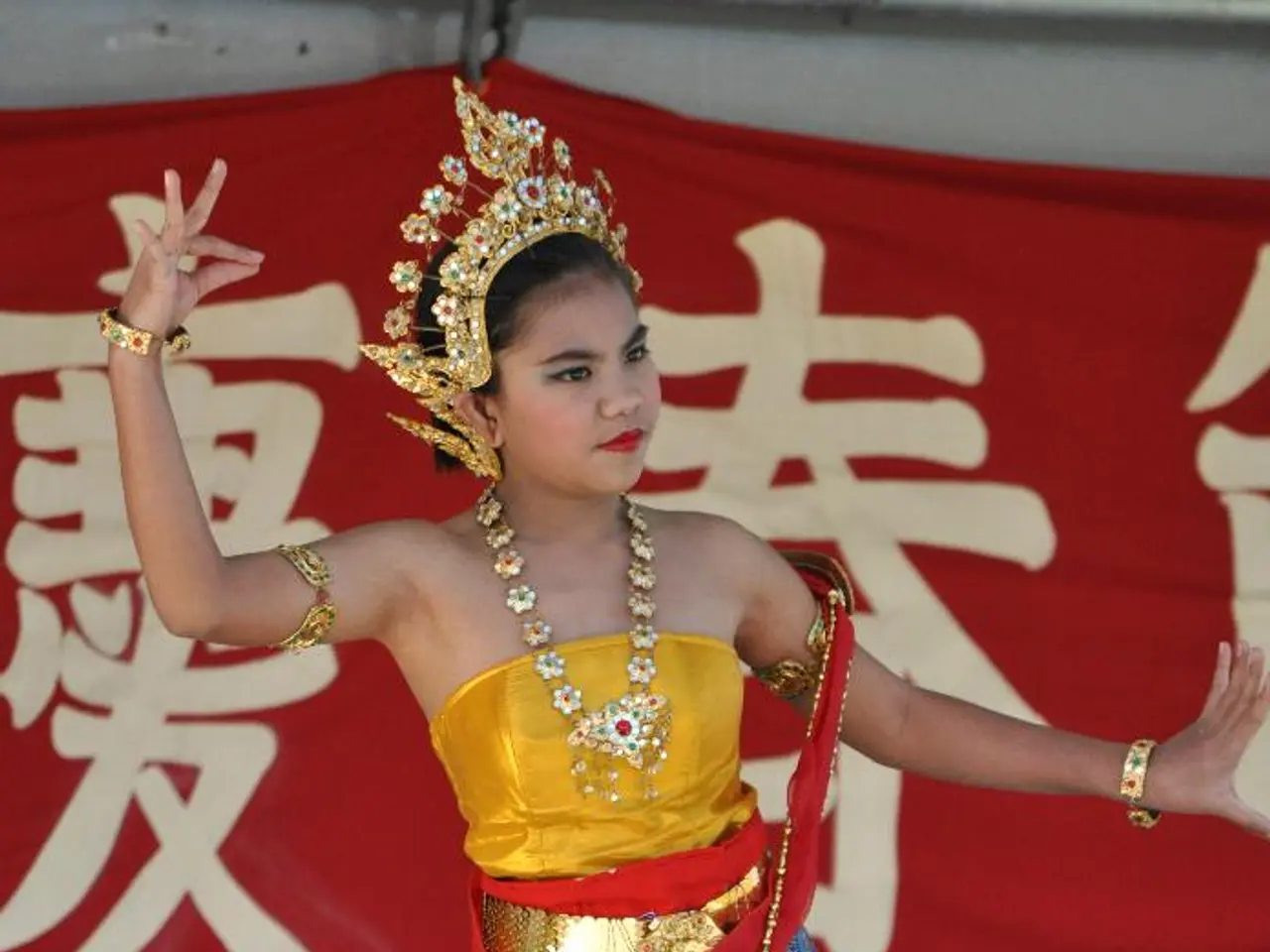Expressing gratitude, according to Olivia Hyunsin Kim: Exploring adoptions through the medium of dance
In Olivia Hyunsin Kim's interdisciplinary dance performance, *Be thankful, they said*, the complex and often challenging experiences of transnational adoptees take centre stage. Drawing from her personal experiences as a Korean adoptee and incorporating movement, storytelling, and multimedia, Kim delves into the criticisms and struggles faced by adoptees themselves.
The performance, which was created following a dozen interviews with adopted individuals, tackles five key issues: cultural erasure, unacknowledged trauma, the myth of the "rescue" narrative, identity conflicts, and the lack of agency and voice for adoptees.
Many adoptees report a sense of cultural disconnection or erasure, struggling to reconcile their birth heritage with the predominantly Western culture of their adoptive families and societies. The performance poignantly conveys this loss of a tangible link to their origins, fostering feelings of cultural invisibility.
Adoptees frequently face unresolved trauma related to separation, abandonment, and loss, which is often overlooked by adoptive families and adoption narratives that emphasise rescue or gratitude. Kim's piece challenges the reductive notion that adoptees should simply “be thankful” and instead reveals the nuanced emotional struggles adoptees endure.
The performance critiques the dominant framing of transnational adoption as a purely benevolent act that "saves" children from poverty or hardship. Adoptees express frustration with this narrative, which can invalidate their experiences by simplifying adoption as a one-sided gift rather than a complex social and political phenomenon.
The work portrays the internal conflicts around identity—being physically disconnected from their birth country and culturally different from their adoptive families—and the ongoing search for belonging. Adoptees report feeling "in-between" or existing in liminal spaces without full acceptance in either community.
Kim’s performance spotlights how adoptees often have been denied agency in their own life stories, with decisions made for them at a young age by adults and institutions. The piece advocates for listening to adoptees’ voices and experiences directly rather than imposing external narratives.
*Be thankful, they said* will be performed at Sophiensæle from Oct 4-7, in English, German, and Korean. The performance is a powerful testament to the experiences of transnational adoptees, shedding light on the complexities and criticisms that often go unaddressed in mainstream narratives.
It is worth noting that, in South Korea, children were sold for a significant sum in some transnational adoptions, leading to criticism rooted in the fact that some adoptions were considered illegal and involved human trafficking. Additionally, there is a significant amount of work from transnational adoptees in other art forms, such as film, visual arts, and theatre.
Some migrant groups in Germany, especially racialised ones, can relate to this attitude of expected gratitude towards the country. Adopted individuals often face a double bind, needing to be grateful for their family and their country of adoption, while simultaneously grappling with the complexities of their transnational adoption experiences.
The body's construction and assimilation into society can create a clash for adoptees, as they may not be fully accepted into their adopted society due to physical appearance. The performance, therefore, chose dance as a means to engage this issue, as the body plays a significant role in the experience of transnational adoptees.
The core team initially consisted of non-transnationally adopted people, but Kim ensured to include the perspectives of adoptees throughout the creative process. Kim herself is an award-winning dancemaker, whose newest work, *Be thankful, they said*, is an interdisciplinary investigation into transnational adoption. Some parents tell their adopted children that their story begins with their arrival in the family, but this is not accurate, even for newborns or older children. This misconception can contribute to the feelings of cultural erasure and identity struggles that many adoptees experience.
- Olivia Hyunsin Kim's dance performance, Be thankful, they said, delves into the realm of fashion-and-beauty and personal-growth, as the artist expresses her thoughts and experiences through movement and storytelling.
- The performance, taking place at Sophiensæle from Oct 4-7 in English, German, and Korean, also discusses the lifestyle aspects of adoptees, examining their struggles with cultural erasure, identity conflicts, and the lack of agency in their own narratives.
- As the performance critiques the fashion-and-beauty of the predominantly Western culture that adoptees often find themselves immersed in, it also touches upon the topic of food-and-drink, as adoptees may grapple with feelings of cultural disconnection even in simple daily rituals.
- Furthermore, home-and-garden plays a significant role in the performances narrative, as it highlights the longing and lack of tangible link to their origins felt by many adoptees.
- In the realm of relationships, the performance sheds light on the complex relationships between adoptees, their families, and their communities, exploring the feelings of gratitude, frustration, and the need for authentic representation and voice.
- As adoptive families and societies play a crucial role in shaping adoptees' experiences, the topic of career-development and education-and-self-development are also addressed in Be thankful, they said, as adoptees strive to find their place in the world and assert their identity.




